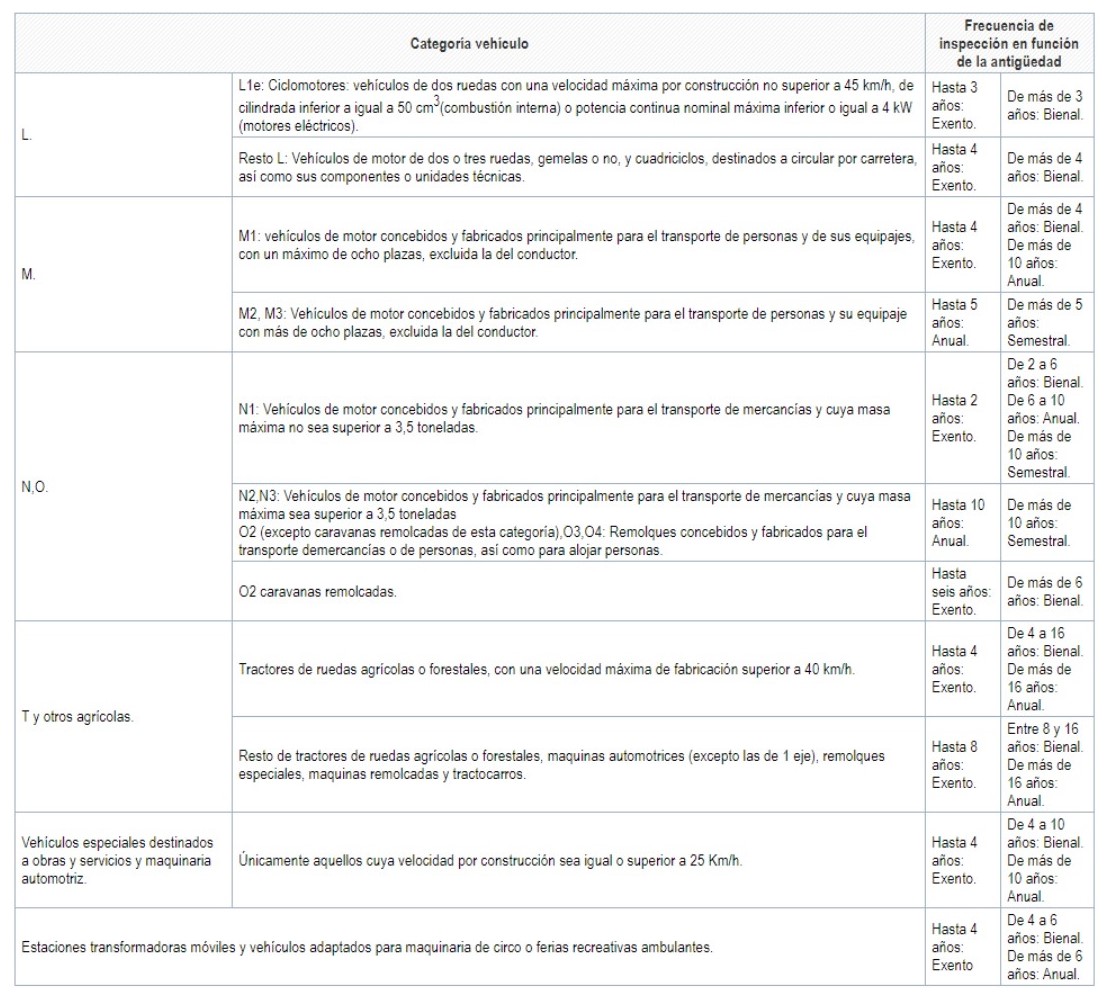The ITV (Inspección técnica de vehículos) is the Spanish vehicle roadworthiness test, like the MOT in the UK. The frequency of the test depends on the category and age of the vehicle. Once you have imported a vehicle into Spain (or if you already have one registered in Spain), it’s liable for periodic inspections.
Most people have category M1 vehicles in Spain, known as ´turismos´. These vehicles don’t have to pass an ITV inspection until 4 years after the date of first registration. Then every two years, until the vehicle reaches ten years old, when the test becomes annual.
Commercial vehicles with the category N1, (so this could apply to pickups and small vans) must be the tested every two years from the date of first registration until they are 6 years old. Then it’s annual up to 10 years old, after which it must pass a test every 6 months.
Motorbikes and other categories of vehicles figure here in the graph below as published in the law Real Decreto 920/2017

Exactly which elements of the vehicle are tested changes over time, but generally include diagnostic testing of electronics and fault history, engine and airbag lights, tyres, headlights, emissions, shock absorbers, steering and brakes, as well as the condition of bodywork and mirrors, windscreen and wipers.
If your vehicle fails its ITV, you have 60 days to fix the issues and return for a retest. During that time, you can only take the vehicle to and from the garage and the test centre.
(Note – you can take the vehicle to a different test centre if that happens to be more convenient than the original centre for the retest).
There are 3 three categories of defect:
- minor faults (defectos leves)
- serious faults (defectos graves)
- very serious faults (defectos muy graves).
The presence of serious faults will lead to an inspection grading of “unfavourable” (desfavorable). Very serious faults will result in an inspection result of “negative” (negativa). If so , the vehicle cannot be driven away from the ITV station; it must be picked up on the back of a low-loader.
Once you have passed the ITV test, the paperwork will be updated with the due date of the next test, you’ll be given a pass sheet that you need to keep in the vehicle and a sticker to put in the windscreen.
If you’re registering a vehicle onto Spanish plates, you will need to pass an enhanced ITV. This is like the normal test, but includes verification of the vehicle and the relevant documentation, so extra technical paperwork is required.
Booking a vehicle in for this enhanced ITV inspection needs to be done in person, because the ITV centre needs to check that the documents are in order before issuing the appointment.
Booking future ITV inspections can be done online or by telephone (each autonomous community has its own website and booking system).
The information in this article was correct on the date published.
Article last reviewed/updated 08.08.2022

